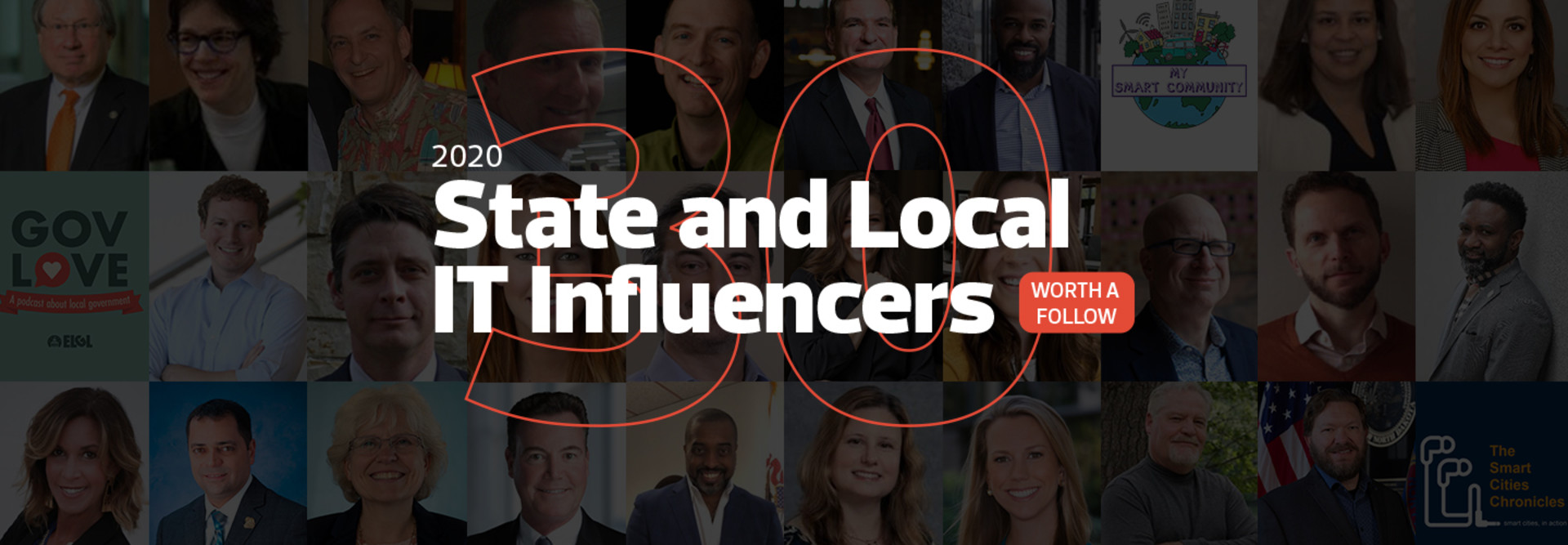30 State and Local Government IT Influencers Worth a Follow in 2020
It’s been a tumultuous year in state and local government IT, which, like every other sector, has been disrupted as a result of the coronavirus pandemic. The most visible sign is that state and local governments are facing looming budget cuts as they see rising unemployment and healthcare costs amid plunging sales, property and income taxes.
At the same time, state and local governments have in many ways risen to the occasion this year, using cloud technologies to increase their capacity to deliver badly needed services. Cloud-based collaboration tools have also helped agency staff remain productive while working from home. And remote conferencing technology has actually made it more likely that litigants will show up in courtrooms.
Technology clearly has a role to play, no matter how the pandemic unfolds. It will help shape the next generation of smart cities and enable digital services citizens increasingly expect of their governments.
Who will shape and lead those conversations? We think the people on this list will play a big role. To help understand how the state and local government IT landscape is likely to shift in the next year, we have crafted a refreshed influencer list of bloggers, Twitter personalities, podcasts, LinkedIn pros and those who use their social channels to stimulate the conversation.
These are the 30 state and local government IT influencers (in alphabetical order) who we hope will be your guides through the uncertain times ahead — and if you’re on the list, grab our IT influencer cover image for your Twitter page and spread the news!
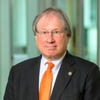
Shark, executive director of the Public Technology Institute, is a go-to resource for insights on local government technology trends. His commentary and knowledge base have been well tapped as local governments move to respond to the pandemic. Shark also recently started his own podcast, Sharkbytes, in which he interviews local government officials about IT trends.

Detroit has been a smart city to watch for a few years now, and it’s easy to see why. Its technology leadership is helmed by Niblock, a fierce advocate for using the power of city government to improve residents’ lives. That has shone through on her Twitter feed during the pandemic, where as CIO she has argued for expanding broadband access to help close the digital divide in Detroit.

Bennett spent three and a half years serving as the chief innovation officer of Kansas City, Mo., so he knows about the promise and perils of smart city development. After leaving government, he hung out his shingle as the founder of B2 Civic Solutions, a smart cities consultancy. On both Twitter and LinkedIn, he regularly highlights the voices of other city technology leaders and has a good read on the pulse of smart city trends.

Lohrmann, a longtime cybersecurity thought leader, has used his Government Technology blog to help state and local government leaders navigate cybersecurity concerns amid the pandemic. Recent topics include technology budget tips, unusual data breaches and how to combat new forms of ransomware. He is also active on Twitter about all things cyber.

Public libraries have had to adapt and remain flexible during the pandemic, and many of them have increased their virtual services. King, digital services director at the Topeka and Shawnee County Public Library, has continued to be a thought leader on Twitter and his website, highlighting how public libraries can continue to provide services for their communities during the crisis.

As Nebraska’s CIO, Toner helped guide his state’s workforce through a shift to remote work during the early days of the pandemic. He has continued to provide updates and insights on his state’s progress through his blog, highlighting Nebraska’s methodical approach.
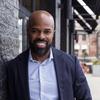
In October 2018, Brantley joined Atlanta’s government as its CIO six months after a devastating ransomware attack, and set about reshaping the culture and bringing in new technology leadership to help. During the pandemic, he used his Twitter feed to advocate for closing the digital divide and highlight the city’s smart city efforts.

The GovLove podcast, from Engaging Local Government Leaders, is about the people, policies and profession of local government. Recent episodes have covered workforce diversity, race and equity issues and how best to use data to improve local government’s response to COVID-19. The podcast has been running since 2015 and has 300 episodes in its catalog.

Farmer — with or without his distinctive curly mustache — has carved out a prominent role as New York City’s CTO. He has taken action to help close the digital divide in the city, delivering 10,000 tablets to elderly residents, and has championed efforts of Mayor Bill de Blasio to accelerate other efforts on that front, including a $157 million investment in broadband infrastructure.

As the CIO for San Mateo County, Calif., Walton is a technology leader in the heart of the Bay Area tech community. He has been an advocate for public Wi-Fi and has also used his Twitter feed to get out public health and safety messages related to both the pandemic and the recent wildfires in and around the county.

As CIO of Asheville, N.C., Feldman has been a major advocate in the press and on Twitter for embracing remote work and cloud services in local government in response to the pandemic. He takes a modern view of how to solve problems and has argued in favor of policies that help prevent burnout among government workers.

Reichental, former CIO of Palo Alto, Calif., is the founder and CEO of Human Future, a technology consulting and investment company. He has recently found himself in the news with the publication of his new book, Smart Cities for Dummies and has been active on Twitter and LinkedIn on smart city topics, including the benefits of cloud services in city government and how to measure progress in implementing smart city plans.

Davis is the director of Smart Columbus for the Columbus Partnership, a nonprofit that has worked with the city of Columbus, Ohio, to drive its smart city vision forward. An on-the-ground leader of the city’s smart mobility initiatives, she is active on Twitter in promoting how the city’s approach is evolving and highlighting new initiatives that have launched during the pandemic, such as an autonomous shuttle to transport prepackaged food boxes.

Musulin is the senior editor of Smart Cities Dive, one of the premier smart cities news websites. On both Twitter and LinkedIn, she is a trend spotter and purveyor of news on a range of smart city topics, from urban mobility to climate change and how the pandemic is affecting cities.
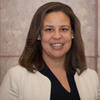
As CTO for Washington, D.C., Parker recently proposed having her office “work with clusters of agencies, like those that support education, economic development or public safety, rather than nearly 100 different individual agencies.” Amid looming budget cuts, she has proposed merging the city’s SmarterDC and ConnectDC programs, and both on Twitter and in real life, she is working to expand access to broadband in the district.

Wheeler, Philadelphia’s CIO, has called for a self-sustaining funding program to provide internet access to any household in the city that cannot afford it. He has also been a major advocate on social media for expanding broadband access, as well as promoting Philadelphia’s smart city vision.

Under Pegues’s guidance as CIO, the city of Aurora, Ill., may soon commit to embarking on its journey as a smart city. Pending the city council’s approval, Aurora will establish a public-private partnership — with vendors providing expertise and amenities, such as sensor installation — to tackle issues ranging from parking to public safety. Pegues is active on LinkedIn, promoting both digital transformation and diversity in IT.

The Town of Cary, N.C., has joined the ranks of smart cities by launching successful, integrated programs while being fairly relentless in promoting itself and having its leaders speak at smart city events. CIO Raimundo Coughlin has had a hand in both, as a tireless cheerleader for the town’s smart city vision and one of the key people in charge of implementing it.
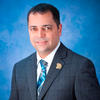
Raimundo Rodulfo, IT director for Coral Gables, Fla., is in charge of making the “City Beautiful” into a smart city. While he grows his Twitter presence, he is very active on LinkedIn, promoting Coral Gables’ smart city vision and talking about smart city trends in general.

Reynolds, formerly CIO for the County Commissioners Association of Pennsylvania, serves as CTO for the National Association of Counties. She is a leading voice for the technology needs of counties, the “middle child” of local governments that can often be overlooked between state governments and smart cities. Both on LinkedIn and NACo’s blog, she serves as a resource for counties and has helped promote technology tools and services to assist them during the pandemic.

As CTO for Digital Communities at Dell-EMC, Silverberg is Dell’s point person on smart cities. He can often be found in op-eds weighing in on technologies such as 5G, real-time analytics and the Internet of Things.

Guerrier stepped down from his role as Illinois CIO on Sept. 4, 2020, and announced Sept. 10 that he would become Global CIO for HP. Prior to his departure, he was an active presence on LinkedIn, highlighting innovation in the state and topics such as the need for diversity in IT leadership. He also helped navigate the state’s IT team through the early stages of the pandemic and laid the foundation for future growth.

As global vice president of government insights and manager of the U.S. Federal Government and Worldwide Smart Cities and Communities Global practices at IDC, Clarke is a go-to expert when it comes to smart city technology trends.

As vice president of Cleantech San Diego, Bresnahan focuses on the sustainable technology nonprofit’s communications, strategic marketing and public relations. The organization coordinates smart city projects for more than a dozen cities and public agencies in the San Diego metro region, and Bresnahan has promoted its work in interviews and on social media.

When it comes to state and local government IT trends, there are few analysts more knowledgeable than Shawn McCarthy, research director for IDC Government Insights. McCarthy remains quite active on LinkedIn, talking up trends in government and critical infrastructure cybersecurity, digital transformation and more.
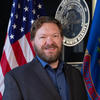
Riley, CIO of North Dakota, has been busy the past few years putting in place a unified cybersecurity approach for the entire state, including public education institutions. That has been especially important as remote learning evolves to become a fixture of school life, and Riley has turned to LinkedIn to promote the state’s solutions and offerings to enhance cybersecurity for schools.
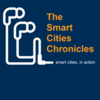
The Smart Cities Chronicles podcast is hosted by the Smart Cities Council, a worldwide network of smart cities companies, policymakers and practitioners. Hosted by Adam Beck, executive director of Smart Cities Council Australia New Zealand, the podcast, which now spans 80 episodes, covers everything from COVID-19 through the lens of a chief data officer to innovation districts and data literacy.

The Smart Community Podcast is a hub that brings together a wide range of voices to discuss all things smart for cities, towns and regions. Its tagline is “Making Smart Communities that are Accessible, Liveable and Sustainable for All.” Hosted by Australia-based engineer Zoe Eather, the podcast has notched 190 episodes since February 2018, covering everything from the future of smart cities to how COVID-19 is impacting data sharing and privacy.

As vice president of IBM X-Force, Whitmore is one of the industry’s leading experts on threat intelligence. She regularly uses her Twitter feed and LinkedIn profile to discuss the latest news on data breaches, ransomware and more.

Jones serves as the CTO for Arkansas and has spearheaded an innovative data center collocation agreement with neighboring Oklahoma. On LinkedIn, she can be found regularly promoting not just the use of cutting-edge technology in state government, but articles on what it means to be a leader.



